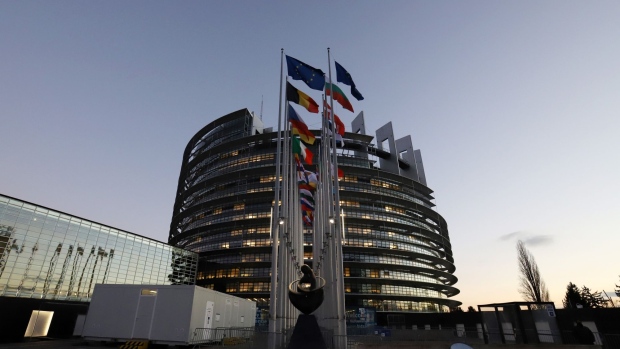Jul 7, 2022
EU Lawmakers Vote to Make Airplane Travel Almost Green by 2050
, Bloomberg News

(Bloomberg) -- European Union lawmakers backed a rapid increase in so-called sustainable aviation fuels, seen by the industry as the best way to clean up the second-most polluting transport sector.
Parliament voted to raise the share of sustainable aviation fuel available in the region’s airports to 6% by 2030, one percentage point higher than initially proposed by the European Commission last year. They backed plans to boost that to 85% by 2050, of which half must be made using captured carbon dioxide and renewable energy.
It marks a major overhaul of the aviation sector, which is seen as difficult to decarbonize given the lack of zero-emission planes and is second only to road vehicles in terms of transport pollution. Now that Parliament has finalized its position, negotiations can begin with EU member states over the final shape of regulations.
“This positive vote will contribute to turning the aviation sector from one of the most polluting sectors in the EU to one of the greenest modes of transport,” said Erik Bergkvist, a negotiator from the Socialists and Democrats political group in Parliament. It brings “us one step closer to our climate ambitions,” he said.
In the run-up to the vote, green groups and airlines were concerned that a definition of sustainable aviation fuels would be watered down to include products that could harm food production and damage the environment, particularly forested areas. In the end, lawmakers voted to exclude some of the most harmful biofuels, such as those derived from palm and soy.
Others fuels, like those produced from animal fats, can be used until the end of 2034, while lawmakers opened the door to technologies like renewable electricity and hydrogen.
I welcome the “decision to approve the Greens/EFA amendments to exclude the very worst feedstocks, like palm oil and food crops, from being counted as ‘sustainable’ aviation fuels,” said Ciaran Cuffe, a green lawmaker. “This is good news for forests, food security, and climate.”
©2022 Bloomberg L.P.








